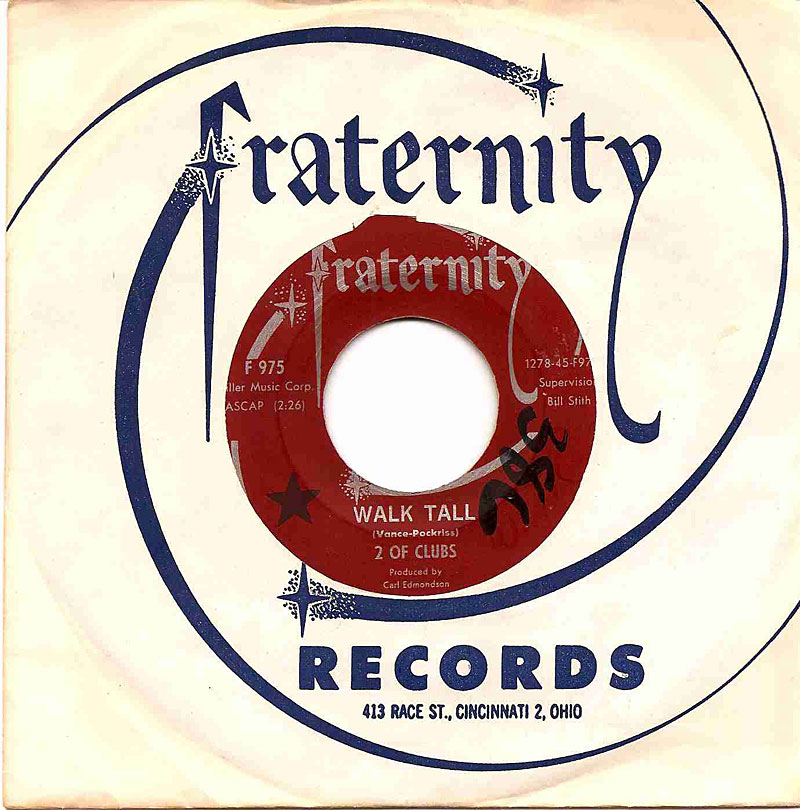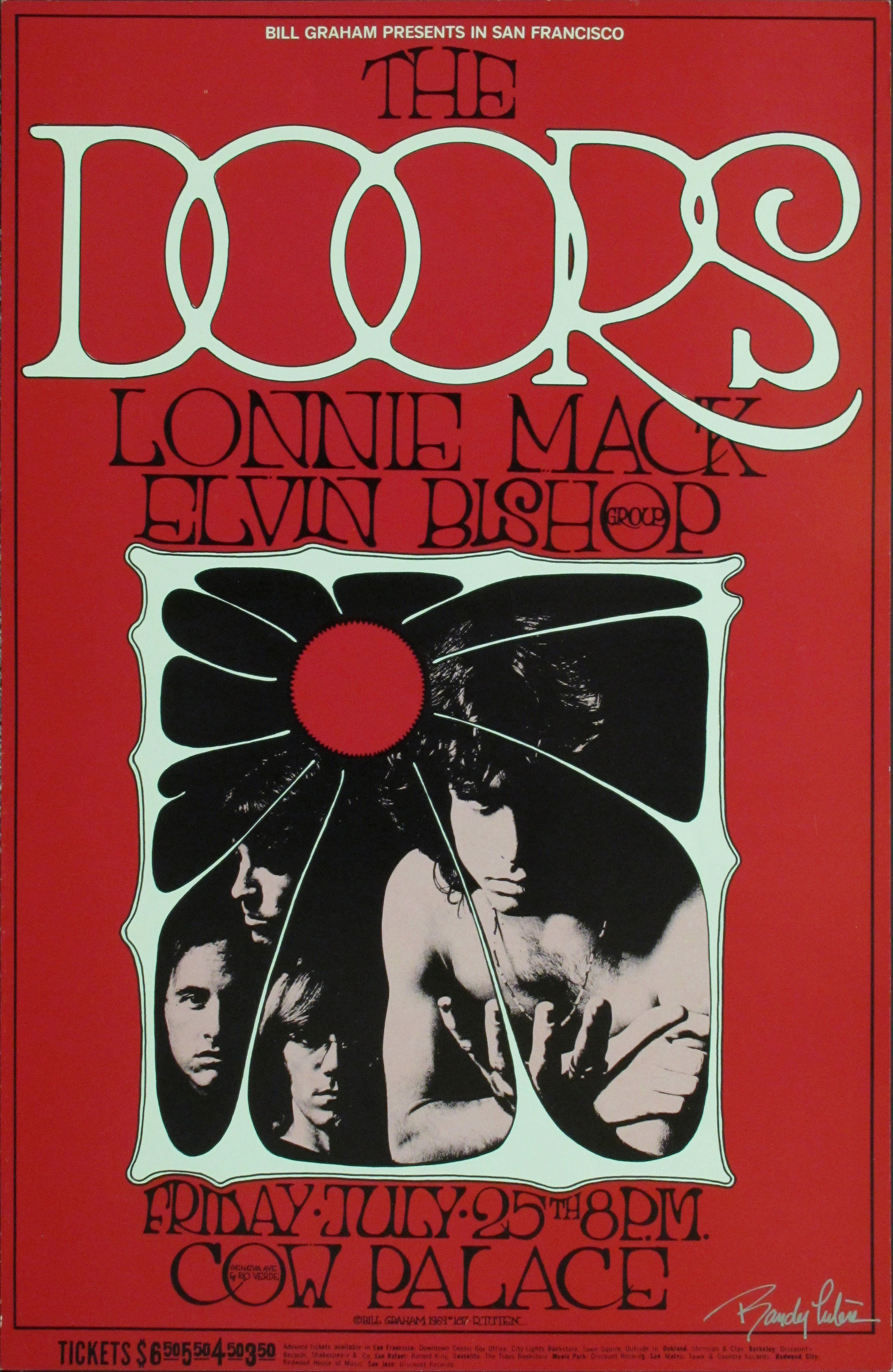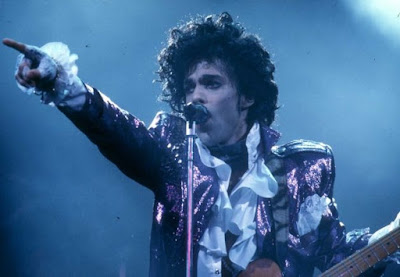 |
| Lonnie Mack |
 |
| The Wham of that Memphis Man |
Lonnie remained active in the music business, mostly playing clubs and touring with band members that had remained with him for year until 2004 when he retired.
In 1963 he went into a recording studio in Cincinnati, Ohio called Fraternity Records. After a session had finished, Lonnie and some other players stuck around and laid down a few tracks which included his own instrumental version of Chuck Berry’s Memphis and another instrumental song called he called Wham. What emerged was one of the greatest instrumental guitar albums of all time.
 |
| Lonnie with his unmodified Vee |
In the mid 1950’s Lonnie started playing in clubs all over the Midwestern United States; mostly in Ohio, Kentucky and his home state of Indiana. That first LP that I have mentioned went on to be rated one of the 100 Best Rock n’ Roll records of all time.
Mack released his final LP in 1990; Lonnie Mack Live - The Attack of the Killer V.
Throughout his career Lonnie played his 1958 Gibson Flying Vee. The serial number on it was 007 as it was one of the first made by the company.
 |
| 1957 Flying V prototype |
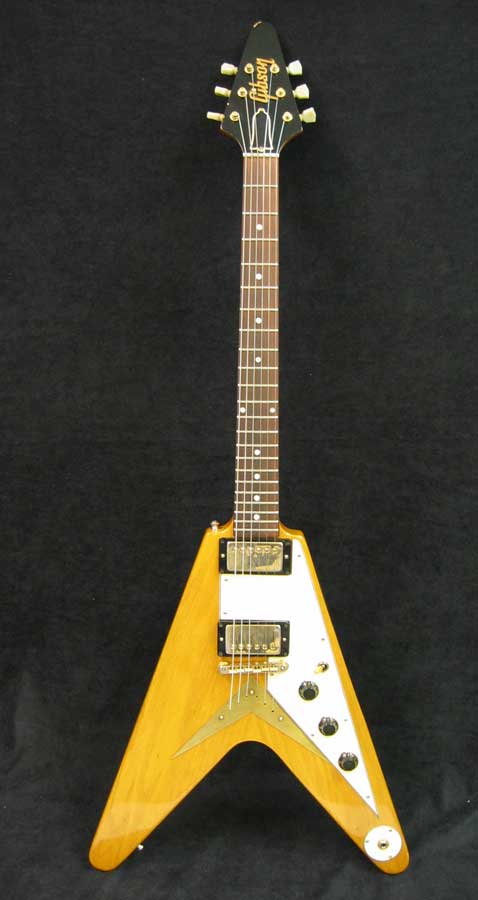 |
| 1958 Flying Vee |
Because blond colored furniture (and blond women) were all the rage during this era, light colored Korina wood was used instead of mahogany.
The guitar was introduced in 1958 along with the Moderne and the Futura (aka The Explorer). It was a dismal failure. The design was too much for the guitarists that wanted their guitars to look…well,like guitars. Due to slow sales, only 98 guitars, production only continued until 1959. Some left over units were sold up through 1963.
 |
| Lonnie with his unmodified V |
 |
| Lonnie Mack in the mid 1960's |
Hughes put in an order to Gibson and he drove from Cincinnati to Kalamazoo, Michican to pick it up. Lonnie got one with the serial numbers 007.
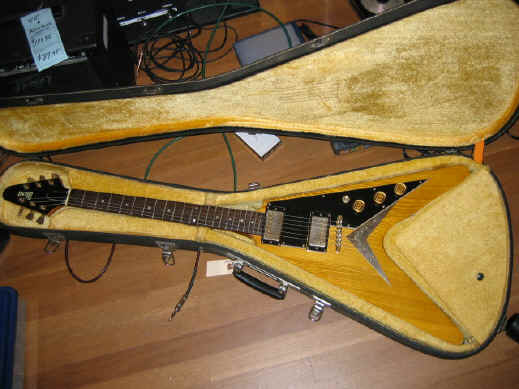
The story goes on that Lonnie wanted a vibrato put on his V, but due to the guitars design there was no place to mount the unit. The best vibrato unit in those days were the ones made by Bigsby.
Glen Hughes had a stainless steel bar cut and bent so part of the unit was mounted on the guitars body and the end of the unit was attached to the crossbar that ran between the sides of the V.
Most everyone named McIntosh is knick-named Mack and Lonnie McIntosh soon became Lonnie Mack.
On March 12, 1963, Mack had played guitar on a recording session for a girls group called The Charmaines at Fraternity’s recording studio. The allotted studio rental time had twenty minutes remaining, the group invited Mack to take advantage.
Lonnie and the other session players put down two songs on tape that evening and one was a rocking, uptempo guitar version of the Chuck Berry song called Memphis Tennessee.
At that time Mack's job was performing behind another Fraternity artist named Troy Seals. Seal went on to become a well known Nashville song writer.
Mack had forgotten about the session, however someone at Fraternity did not. They liked it well enough to issue it as a single. Seals had just heard from a friend that Lonnie’s song was climbing the charts. By the summer of 1963 Memphis charted in at number 4.
 |
| Lonnie Mack |
The album cover shows Lonnie leaning on the bottom of his upside down Flying V. This was before the Bigsby unit was installed.
 |
| Magnatone 260 |
Mack said that he was going after the Hammond organ sound that was prevalent in Gospel and Blues.
When Lonnie Mack was playing at clubs in the mid 1960's. He originally used a Magnatone 260 to get his signature sound. This amp had the true FM vibrato, but no reverb.
 |
| Gene Lawson |
Lawson removed the amplifiers speaker and put in a step down preamp. The signal from the Magnatone was then sent to a blonde Fender Bandmaster head which powered two blonde Fender Bandmaster 2 x 12” cabinets. I am told that all of the Fender equipment had the “wheat grill cloth on them.”
And that is how Lonnie got his unique sound back in the day.
Later on as Lonnie began to play larger venues he used a Boss chorus pedal through a large amplifier,
Eventually Lonnie settled on a using a Roland JC 120 amplifier that he placed on top of two matching speaker enclosures.
 |
| 2003 Concert |
 |
| Lonnie playing #007 |
One time after a bad show, Lonnie told the story the he got mad and threw the Vee in a trash can. A fan fished it out and returned it to him five minutes later.
That guitar is now worth at least six figures, not just due to the fact it is an original 1958 Gibson Flying Vee, but the fact it is Lonnie Mack's Flying Vee.
Mack said that he has played the heck out his Flying V; the back of the neck is scarred up. The guitar has been re-fretted and new pickups were installed back in the late 1960’s.
 |
| The back side of the Wham LP |
There are couple of interesting facts that have resulted from Mack’s career in the mid 1960’s.
First of all Memphis was the highest rated guitar song. Much of its popularity is due to the popularity of the electric guitar at that time.
Throughout his career Lonnie had recorded with The Doors, as a bass player and played on concert bills with them.
He also recorded with James Brown (who also record most of his hit records in Cincinnati, Ohio at another company), Ronnie Hawkins and Doby Gray.
 |
| Lonnie with Keith and Ron |
He played concerts with Roy Buchanan, Albert Collins, Ron Wood, Keith Richards and Stevie Ray Vaughn.
This is a recent video featuring Gene Lawson, Mack's original drummer
